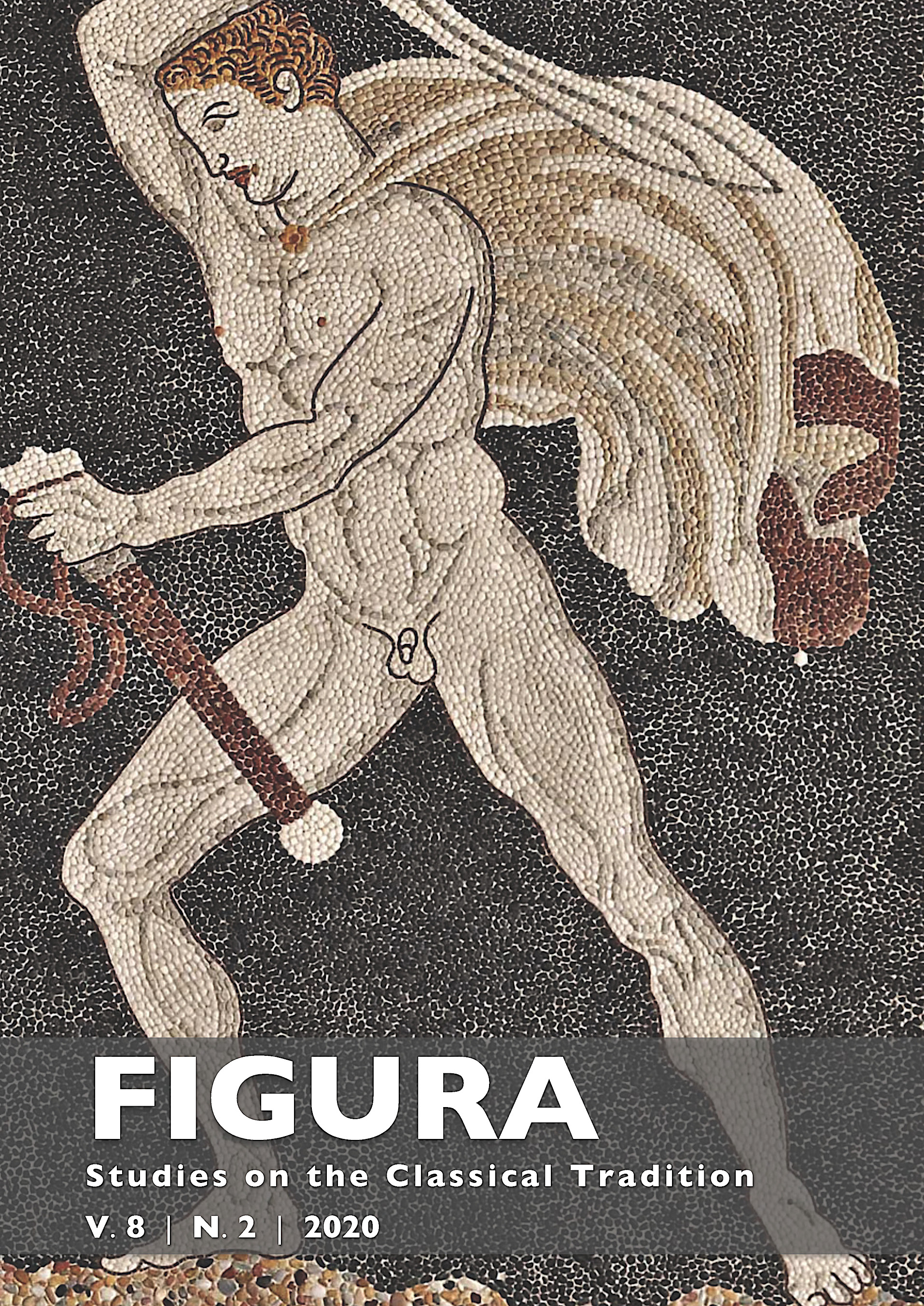Abstract
Many are the stories, anecdotes and sayings that involve Alexander the Great, the glorious king of Macedonia. Among the authors who have dedicated to telling the story of this illustrious man, Plutarch stands out for bringing a biographical narrative written in a high style as well as for using several literary genres for composing his work. Therefore, the aim of this article is to discuss the biographical structure of Alexandre's life and to analyze the Plutarchian construction of his character, which reveals to be a reflection of his character's virtues and vices.
References
BOSWORTH, A. B. Conquest and Empire. The Reign of Alexander the Great. Cambridge: Cambridge University Press, 1988, p. 176.
BOURDIEU, Pierre. “A Ilusão Biográfica”. In: BOURDIEU, Pierre. Razões práticas: sobre a teoria da acção. Tradução de Miguel Serras Pereira. Oeiras: Celta, 1997, pp. 53-59.
COOK, Brad L. “Plutarch’s Use of λέγεται: Narrative Design and Source in Alexander”. Greek, Roman, and Byzantine Studies, v. 42, 2001, pp. 329-360, p. 343.
DROYSEN, Johann G. Alejandro Magno. Traducción de Wenceslao Roces. Madrid: Fondo de Cultura Económica, 2001, p. 3.
GEIGER, Joseph. “The Project of the Parallel Lives. Plutarch’s Conception of Biography”. In: BECK, Mark (Ed.). A companion to Plutarch. Sussex: Blackwell, 2014, pp. 292-303.
GREEN, Peter. Alexandre, o Grande, e o período helenístico. Tradução Rafael Mantovani. Rio de Janeiro: Objetiva, 2014, p. 39.
HOMERO. Ilíada. Tradução e apresentação de Carlos Alberto Nunes. São Paulo: Melhoramentos, 1960.
HOMERO. Odisseia. Tradução e apresentação de Carlos Alberto Nunes. São Paulo: Melhoramentos, 1962.
JONES, C. P. “Towards a Chronology of Plutarch's Works”. The Journal of Roman Studies, v. 56, 1966, pp. 61-74, p. 72.
KING, Carol J. “Plutarch, Alexander, and Dream Divination”. Illinois Classical Studies, n. 38, 2013, pp. 81-111, p. 81.
LACY, Phillip. “Biography and Tragedy in Plutarch”. The American Journal of Philology, v. 73, n. 2, 1952, pp. 159-171, 168.
MOSSMAN, J. M. “Tragedy and Epic in Plutarch's Alexander”. The Journal of Hellenic Studies, v. 108, 1988, pp. 83-93.
PLUTARCH. Life of Alexander. Lives. Vol. VII. Translated by Bernadotte Perrin. Cambridge / Massachusetts / London: Harvard University Press, 2004.
PLUTARCH. On superstition. Moralia. Vol. II. Translated by Frank Cole Babbitt. Cambridge / Massachusetts / London: Harvard University Press, 1946.
PLUTARCO. Como distinguir o bajulador do amigo. Tradução, introdução e notas de Maria Aparecida de Oliveira Silva. São Paulo: Edipro, 2016.
PLUTARCO. Da educação das crianças. Tradução, introdução e notas de Maria Aparecida de Oliveira Silva. São Paulo: Edipro, 2015.
PLUTARCO. Vidas paralelas. Primeiro volume. Teseu. Introdução e notas de Paulo Matos Peixoto. Tradução direta do grego por Gilson César Cardoso. São Paulo: Paumape, 1992.
PLUTARCO. Vidas paralelas. Quarto volume. Alexandre. Introdução e notas de Paulo Matos Peixoto. Tradução direta do grego por Gilson César Cardoso. São Paulo: Paumape, 1992.
SILVA, M. A. O. Plutarco historiador: análise das biografias espartanas. São Paulo: Edusp, 2006, pp. 16-23.
STADTER, Philip A. “The Proems of Plutarch's Lives”. Illinois Classical Studies, v. 13, n. 2, 1988, pp. 275-295, p. 275.

This work is licensed under a Creative Commons Attribution-NoDerivatives 4.0 International License.
Copyright (c) 2020 Maria Aparecida de Oliveira Silva

